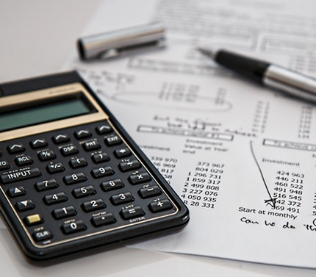VAT Overview
Gulf Co-operation Council (GCC) countries have agreed ‘in principle’ to the GCC VAT Agreement to levy VAT (Value Added Tax) in the region. This will help the region to reduce their dependence on oil and other hydrocarbon products as a source of revenue. It is agreed by all the GCC countries that VAT will be introduced latest by 1st January 2019. However, UAE and KSA have decided to implement VAT w.e.f 1st January 2018. VAT registrations in UAE have begin from October 01, 2017.
VAT is one of the most common types of consumption tax found around the world. Over 180 countries around the world have implemented VAT. It includes the European Union (EU), UK, Canada, New Zealand, Australia, Singapore, Malaysia, India etc. USA, GCC countries and some other countries, especially from African continents, have not introduced VAT.
VAT is charged at each step of the ‘supply chain’. End consumers generally bear the VAT cost while registered businesses collect and account for the tax, in a way acting as a tax collector on behalf of the Federal Tax Authority.
Click on the link to view the updated List of UAE Designated Zones For the purposes of the Federal Decree-Law No. 8 of 2017 on Value Added Tax
General Principles of VAT in UAE
Value-Added Tax or VAT is a tax on the consumption or use of goods and services levied at the point of sale.
VAT in the UAE. A couple of items are zero rated and the rest of the items are full rated or standard rated @ 5%. The criteria for VAT registration will be on the annual turnover of the business entity. The government has tentatively decided to introduce VAT in the UAE by 01 January 2018. The Standard rate of VAT in the UAE is 5%.
- InputVAT
Input VAT is the value added tax added to the price when goods are purchased or services are rendered. If the buyer is registered in the VAT Register, the buyer can deduct the amount of VAT paid from his/her settlement with the tax authorities.
- Output VAT
Output VAT is the value added tax calculated and charged on the sales of goods and services.
- Exempt Supply
An exempt supply is a supply on which VAT is not charged and for which the related input VAT is not deductible.
For example: bare land, local transport, the sale of residential property (second sale onwards) and lease of the residential property.
- Zero rated supply
A zero-rated supply is a taxable supply on which VAT is charged at 0% and for which the related input VAT is deductible.
- Standard Rate Supply
A taxable supply at the Standard Rate is a supply on which VAT is charged at 5% and for which the related input VAT is deductible. All items which are not coming under both exempted category, as well as zero-rated category, are coming under standard rated supplies.
- Reverse charge mechanism under UAE VAT
In the UAE VAT, the Reverse Charge Mechanism is applicable while importing goods or services from outside the GCC countries. Under this, the businesses will not have to physically pay VAT at the point of import.
The responsibility for reporting of a VAT transaction is shifted from the seller to the buyer; under Reverse Charge Mechanism. Here the buyer reports the Input VAT (VAT on purchases) as well as the output VAT (VAT on sales) in their VAT return for the same quarter.
The reverse charge is the amount of VAT one would have paid on that goods or services if one had bought it in the UAE. The importer has to disclose the amount of VAT under both Input VAT as well as Output VAT categories of the VAT return of that quarter.
Reverse Charge Mechanism eliminates the obligation for the overseas seller to register for VAT in the UAE.
Registration and Compliance Requirements
VAT Registration Threshold
If the Annual Turnover of the company is more than AED 375,000/, it is mandatory for the company to register under UAE VAT before the end of the year 2017.If the Annual Turnover is between AED 187,500 & AED 375,000/, it is optional for the company to be registered under UAE VAT law. Further, if it is less than AED 187,500/, the company need not register under this law.For the startups, if the VAT attracted expenses are more than AED 187,500/, (USD 50K) such companies have to be registered under the UAE VAT law.
The threshold mentioned above will be calculated as follows:
The total value of supplies made by a taxable person for the month in which he is applying for VAT registration and the previous eleven months.The total value of supplies of the subsequent 30 days on which he is applying for VAT registration.If in any of the above two options, the turnover is more than AED 375,000/- the company has to register for VAT.For arriving the turnover for VAT registration purpose, value of exempted supply will not be considered.
- Who is a Taxable person under GCC VAT Agreement?
Taxable Person means any person who is conducting an economic activity for the purpose of generating Income.
- Such person is registered or obliged to register for VAT as per the registration threshold in a member state.
- Taxable person can include businesses located outside the GCC territory.
- Taxable person can be any individual person conducting an economic activity.
- Registration for VAT
It is mandatory to get registered by every taxable person under the VAT registration platform before the end of the year 2017.
- What is Tax Group / VAT Group?
Member State may allow 2 or more persons that are residents of the same member state to register for VAT as a Tax Group. Such group will be treated as a single taxable person for compliance of UAE VAT law. Entities can register as VAT Group if:
- Each person has a place of establishment or a fixed establishment in the UAE.
- The persons are “related parties” and
- Either one person controls others, or two or more persons from the partnership control the others
Entities within one VAT Group are treated as one entity for the UAE VAT purpose.Supplies made between members of a VAT Group will not be considered as a transaction under UAE VAT. Further, one entity cannot be part of more than one VAT group.
- Record Keeping
It is mandatory for every taxable person to maintain books of accounts under UAE VAT law. In addition to that the authority can ask for additional documents such as, annual accounts, general ledger, purchase day book, invoices issued, invoices received, credit notes, debit notes, VAT Ledger etc.Under the UAE VAT law the books of accounts and records are to be maintained for five years.
Our Services
Our VAT experts can assist in following ways:
- VAT Registration.
- Review of your existing accounting system to ensure that it is VAT complaint.
- Review of your chart of accounts and suggesting the changes to comply VAT accounting norm.
- Review of Invoice Templates.
- Review of Inventory accounting with classification of 5% , 0% and exempt category.
- Cash flow impact assessment.
- Outsourcing the accounting to wise in case you don’t have a dedicated accounts team.
- Periodic Review of records / Books of accounts for preparation of VAT return filing .
- Assist in VAT assessment with FTA.
- Statutory audit of the organization.






 Vat & Tax
Vat & Tax Auxiliary Services
Auxiliary Services